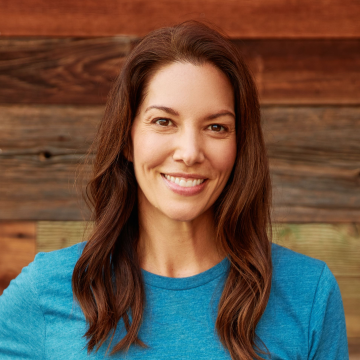When you tackle big goals in your life, you will inevitably be confronted with fear. Learn how to make those fears less daunting and “one weird trick” that can make fear feel good.
Need advice about something? Ask us here: ForcesOfEqual.com/Advice/
Transcript
Pam: [00:06] You’re listening to Not Bad Advice, where our goal is to offer perspective that helps you improve one aspect of your life at a time.
[00:13] I’m Pamela Lund.
CK: [00:20] And I’m CK Chung.
Pam: [00:22] And we hope that after listening you’ll think, “Hey, that’s not bad advice!”
[00:26] When you tackle big goals in your life, you will inevitably be confronted with fear. Whether it’s fear of failure, fear of judgment, fear of what you actually need to do, such as public speaking, or any of the myriad fears that may come up. There is always some fear.
[00:56] In his book, The Art of the Impossible, human performance expert Steven Kotler writes, “if you’re interested in impossible, then you’re interested in challenge; and if you’re interested in challenge, you’re going to be scared.”
[01:11] Fear is also the reason most people don’t reach their goals, which is why, according to Kotler, the grit to face your fears is necessary to do great things. And you can actually learn to use fear to your advantage.
CK: [01:26] Fear makes you hyper-focused because if there’s a threat to your safety, you need to focus on mitigating that threat above all else. It’s a survival mechanism. You’ve probably experienced this. If you’ve ever been walking alone in the dark and suddenly heard a noise behind you. Immediately, all of your attention is focused on identifying the noise and whether it came from someone or something that could hurt you.
[01:52] Or if you’ve ever done something fun, but scary, like riding a roller coaster or going skydiving, you weren’t thinking about your to-do list while you were flying through the air. You are completely focused and in the moment, which is what being in the flow state is like.
[02:09] So if you can learn to be afraid to do something, but do it anyway, you can unlock really productive, deep flow states that help you make quick progress toward your goals.
Pam: [02:20] And every time you do something that you’re a little bit afraid to do, you get a hit of dopamine, AKA the feel good chemical, and of norepinephrine, a neurotransmitter that makes you feel alert and ready for action. Together, these chemicals can – in the right circumstances – help you concentrate and get into a flow state where you can think more clearly and do more in a shorter period of time, and then feel really great about it afterwards.
CK: [02:49] But too much fear is counterproductive and can prevent you from doing anything at all. You need to find the sweet spot where it’s helpful – where it’s challenging rather than debilitating.
Pam: [03:01] Steven Kotler says to do this, you need to identify and confront what he calls your Massively Transformational Fears. These are a few things that you’re scared of and that are holding you back from achieving your goals. These aren’t just your biggest fears. Like, one of my biggest, most irrational fears is being buried alive, but that’s not a Massively Transformational Fear that I need to face, because I’m not a magician who wants to do a coffin escape illusion. So I don’t need to face my fear of being buried alive to achieve my goals.
[03:37] Massively Transformational Fears, or MTFs, are things like public speaking, having people read your writing, or playing your instrument in public. They have to be fears that are preventing you from doing something you really want to do, or you won’t be motivated to confront them.
[03:56] Every week, I face some of my MTFs by publishing this podcast. Every time we publish a new episode, I’m scared. I’m afraid people will think that the show is bad or dumb, or that I’m dumb, or that I am a judgy know-it-all that’s trying to tell you how to live your life, or that the sound of my voice is so grating that no one will want to hear it.
[04:19] These are fears that could easily prevent me from publishing new episodes, but they’re also fears that make me focus on making the show as good as I can with the skills, resources, and knowledge that I have now. Knowing that every time I face my fears, I get better, which means I can achieve my goals of making better episodes for you.
[04:43] And that’s what facing your Massively Transformational Fears is all about: being scared, doing it anyway, and getting better with experience.
CK: [04:54] Yeah, for the past year I’ve been facing my Massively Transformational Fear of asserting myself.
[05:00] I want to impart my knowledge and creativity to benefit others, but I’ve been held up by my imposter syndrome. On the flip side, this inferiority complex pushes me to learn as much as I can in order to be as accurate and as authoritative as I can be.
[05:18] So I began tackling my MTF by conversing with Pam a little more mindfully. And then that led me to start a podcast called Practice, where I basically practice speaking on the fly. From there, we’ve evolved to develop this podcast and now I’ve proceeded to practice livestreaming, and I’m also getting ready to produce video content for YouTube.
Pam: [05:44] And that’s exactly how you should tackle your Massively Transformational Fears. Break them down into smaller, slightly less scary things that you can do now. For example, if your fear is public speaking, you can start by having conversations with strangers one-on-one. Then, you can try giving a short speech in front of a few of your close friends. Then, you could join a group like Toastmasters, where you practice public speaking in a small, low stakes environment.
[06:14] With each step, you’re moving closer towards doing the thing that scares you most while making it less daunting. And each step increases your level of grit, which makes you more able to take the next one.
[06:29] No matter how much grit you develop though, you’re never going to stop feeling fear. I know people that absolutely love speaking at conferences, but they still get scared before going on stage. The difference between them and the people who want to speak, but don’t, is that they’ve developed the grit to face their fears.
[06:50] So your going to build up your grit to face your fears by identifying the Massively Transformational Fears that you want to tackle. Break them down into doable chunks that are a little less scary. Then, when you are afraid, you can use a trick to push through the fear.
[07:09] Fear and excitement are essentially the same thing to your brain. So when you feel fear, you can reframe it as excitement by simply saying, “I’m so excited” three times. You have to say it with enthusiasm, and say it convincingly. Put a big smile on your face and really sell it to yourself. You can even add on what you’re excited about. Like, I’m so excited to get on stage and give this presentation.
[07:39] You will still feel all of the physical manifestations of fear, like a faster heart rate and perspiration, because excitement and fear produce the same biological effects but you will mentally feel different about what you’re doing, and that can help you tap into the focus and flow benefits of dopamine and norepinephrine.
[08:00] Ultimately, the goal is to train your mind and body to trust that you are not facing a real threat, and that whatever it is that you want to achieve is exciting and wonderful. Not something to be fearful of. That way, when you do feel fear, you can use it to energize you rather than paralyzing you.
[08:21] If you can do that, you can do anything.
[08:25] If you found yourself thinking, “Hey, that’s not bad advice,” while listening today, we’d love it if you shared the episode with your friends and rated it in iTunes.
[08:34] You can get in touch with us on Twitter, where I’m @Pamela_Lund and CK is @cKdisco.
[08:41] To find us on other platforms, visit ForcesOfEqual.com/Advice. There, you can also contact us if there’s something you need advice about. We’d love to hear from you.
CK: [08:51] I’m envisioning Jessie Spano.
Pam: [09:01] I’m so excited!
CK: [09:03] But… but don’t- don’t do it like her because she was- what was it?
Pam: [09:07] She was on speed.
CK: [09:09] Yeah. So she was like, I’m so excited! I’m so excited! I’m so… I’m so scared.
Pam: [09:14] Yeah, don’t do that. That’s the opposite of what you want. And don’t do speed.






